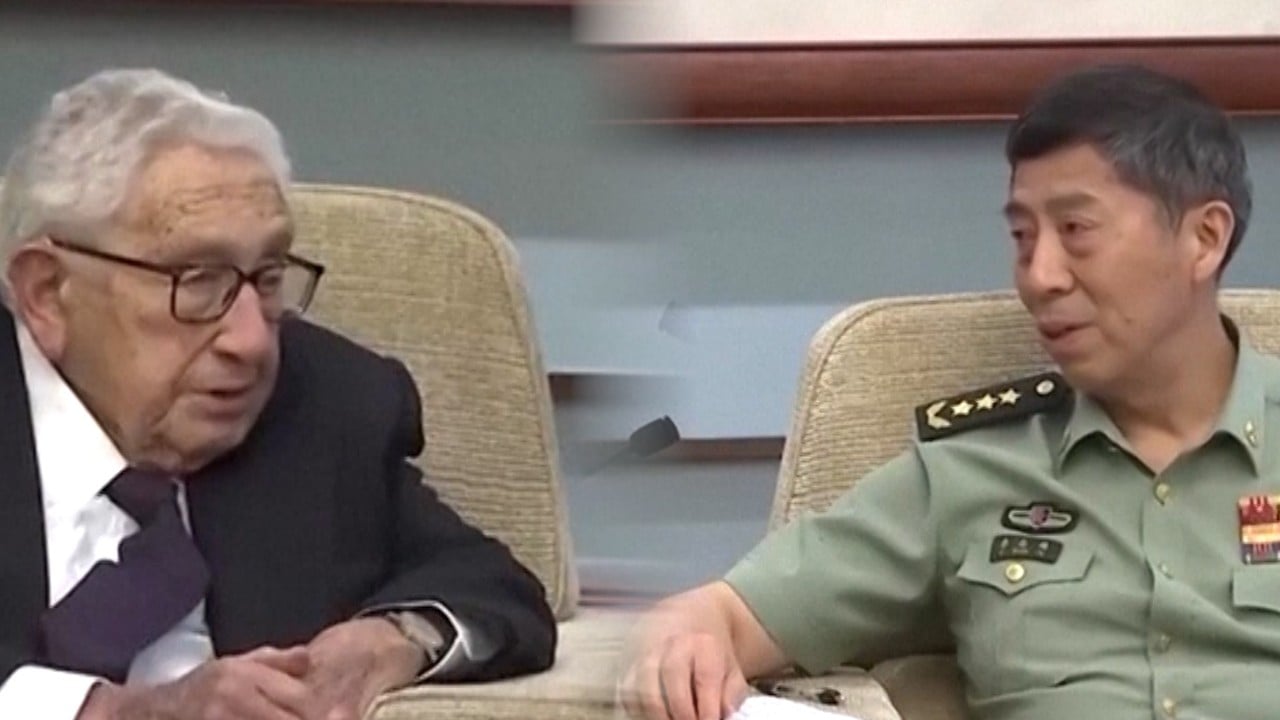
Chinese military snubbed invite to defence conference, says senior US admiral
- Indo-Pacific Command chief John Aquilino tells Aspen Security Forum that the US had not received a response to the invitation to attend the event in Fiji
- China is refusing requests to resume high-level talks, with sanctions on Defence Minister Li Shangfu an ongoing source of tension
“We have invited, but we have not heard [back],” Aquilino said.
Zhou Chenming, a researcher with the Beijing-based Yuan Wang military science and technology think tank, said China had expressed concerns about Washington’s promotion of closer ties with Taiwan, work with Asian allies to contain China and increased military reconnaissance near China’s coastline.
“China feels disheartened because senior US officials, including Secretary of State Antony Blinken and Secretary of Defence Lloyd Austin, all claimed that they don’t want conflict between the two countries,” Zhou continued.
“But until now, Washington has not taken any steps to alleviate tensions such as lifting the sanctions against Chinese Defence Minister Li Shangfu.”
Li was sanctioned in 2018 for his alleged role, as head of the PLA’s Equipment Development Department, in securing the transfer of Russian jets and missiles to China.
“It’s extremely rare for a Chinese defence minister to meet a former secretary of state, and I believe it was Kissinger who requested the meeting with Li, because he is trusted by the Pentagon to help push for the resumption of the dialogue with the PLA,” said the academic who spoke on condition of anonymity.
Kissinger has visited China more than 100 times, state broadcaster CCTV reported on Thursday, including his secret trip to Beijing in July 1971, which paved the way for Richard Nixon’s icebreaking visit to China the following year.
But the scholar warned: “I’m afraid that Kissinger can’t break the ice between the two militaries this time, as Washington has failed to keep its words about improving the bilateral ties as the two sides agreed to last November when Presidents Xi Jinping and Joe Biden met in Bali.”
The meeting between Kissinger and Li followed one between Xie Feng, China’s ambassador to the US, and Ely Ratner, US assistant secretary of defence for Indo-Pacific security affairs.
“I think [the current situation] reflects the really terrible state of the relationship and Beijing’s disinterest in actually improving it through dialogue,” said Drew Thompson, a visiting senior research fellow at the National University of Singapore’s Lee Kuan Yew School of Public Policy.
The US is keen to resume high-level talks between the two militaries – which Beijing suspended last year in protest at a visit to Taiwan by then House speaker Nancy Pelosi – as a way of reducing the risk of misunderstandings.
Shi Yinhong, an international relations professor at Renmin University, said that Beijing no longer trusts Washington to reduce engagement with Taiwan and will not agree to normalise military relations as a result.
“Beijing fears that the US will use it as an excuse to provide comprehensive support to Taiwan ranging from military, economic to diplomacy, encouraging the Taipei government to pursue independence freely,” Shi said.
He added that China took efforts to prevent conflict seriously, but believes that is mainly down to front-line offices on both sides as well as “Washington’s self-restraint capability”.


